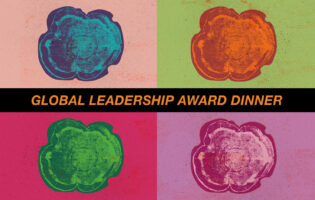Testimony before the Senate Foreign Relations Committee

John Kornblum
AGI Trustee
John Kornblum is a senior counselor at the international law firm Noerr LLP and a former U.S. ambassador to Germany. He is a member of the AGI Board of Trustees.
Senator Corker, Members of the Committee,
I am honored to have been invited to join your hearing on the crisis in Ukraine. I was a frequent guest of this Committee and its members during the 1990s in my role as Assistant Secretary of State and Special Envoy to the Balkans. I look forward to our discussion of ways in which Russian strategy can be countered.
In those years, we cooperated to establish conditions for a peaceful, democratic transition for nations of the former Warsaw Pact. Congressional support for economic and humanitarian aid to Russia, the economic support funds extended to Eastern Europe, and the tireless efforts of Senators Nunn, Lugar, and many others to reduce the threat of nuclear weapons in the former Soviet Union, including in Ukraine, were essential to our success.
In the London Summit Declaration of July 6, 1990, NATO promised to “reach out to the countries of the East which were our adversaries in the Cold War and extend to them the hand of friend-ship.” The London document also presented ideas for an important strengthening of the OSCE, which were agreed at the Helsinki Summit two years later.
First assessments of conditions in the former Warsaw Pact in 1990 were pessimistic to say the least. These countries had been stripped of their talent and identity and left with few of the structures of modern political or economic life.
But Western assistance and the dedication of their own peoples worked a near miracle. One-by-one the nations of Central Europe departed intensive care. Today, we can be proud of the se-cure and prosperous democratic community of nearly one billion inhabitants which stretches from the East of Europe to the tip of Alaska.
Membership of both NATO and the European Union gave these countries the stability and the technical assistance necessary to succeed. It was in no way aimed at isolating Russia.
Many of the Russian leaders with whom we dealt in those years welcomed these efforts. They viewed the collapse of the Soviet Union as liberation rather than defeat. They embraced hopes for Western democracy as the best path to both security and freedom for their country.
I repeat this history, because it so contradicts the version of post-Cold War events we now often hear. Today it is our economic and political success which threatens Russia’s authoritarian rulers, not our soldiers. Those who find logic in Russian criticism of Western behavior 20 years ago have perhaps not asked residents of Estonia or Slovakia how they feel about NATO expansion.
This is why the Russian counter attack, military and digital, has been so vicious. Current Russian leaders appear to view the growing encroachment of the Western way of life as an existential challenge.
I am one who favors military assistance to help Ukraine regain its footing. But I believe that a substantially expanded public presentation of the facts could be equally as important.
Why? Because at the moment, Putin’s ability to control public perceptions is severely hindering efforts to stop the fighting and restore order in Ukraine. And, for the moment at least, the West is losing the rhetorical battle.
Russia has invested immense resources into applying the tools of globalization to a massive pro-gram of disinformation. It has combined nationalism within Russia, with the legend of a proud nation humbled by the evil West and added an extra dose of old fashioned anti-Americanism to shoot an unbroken stream of invective around the world.
Putin is also using the same methods to influence the self-styled Western “realists” who seem not to understand that Russia’s anger has little to do with NATO or European security structures. Bowing to Putin’s imperial pretensions will do nothing to redress the falling oil price, Russia’s failure to invest in new technology, or the flow of talented scientists and technicians to the West.
In other words, the Russian attack on Ukraine has already expanded into what is probably the world’s first digitally managed diplomatic confrontation. Normal people, rich and poor, are in-creasingly worried that they are losing control of their destinies to something called globaliza-tion. Putin has been able to harness these fears in a desperate effort to return the narrative to issues of the past.
He wants us to believe that the crisis is really about the way in which the West suppresses coun-tries like Russia which don’t follow the American lead. However far-fetched it may seem, this image of Western betrayal is attractive to many non-European and even some European coun-tries who also feel put upon by the West. The echo has helped Putin justify his unbroken flow of troops and materiel into Ukraine. At the same time, Russian aggression has provided Ukraine one thing which was so far lacking: national purpose.
Unless the U.S. and its allies wrest the rhetorical high ground from Russia, Mr. Putin is likely to become more arrogant and thus more dangerous. His sense of media control could ultimately make him over-confident and prone to disastrous mistakes. Senator Corker, I congratulate you for your efforts to strengthen our information activities in the region.
Championing the need to ensure a democratic operating system for digital society is today the equivalent of our support for political democracy during the Cold War. The radical integration of the world through high speed information networks and modern logistics is redrawing the global geostrategic map before our very eyes.
Everyone, including Russia, will profit if we ensure that the principles of Western democracy are firmly established as the basis for global integration. If, however, we allow the debate to lend credence to those who reject the openness of Western values, it won’t stop at Russia or Ukraine, or even in Europe. China is already mounting a counter attack. We could see the digital world rapidly deconstructing into competing cultural fiefdoms.
Above all, this crisis demonstrates that in a networked world, there are no longer any unim-portant far-away countries. Every place on earth can become central to our concerns if the fac-tors line up correctly. One of the main jobs of a new generation of digital diplomats will be to learn how to judge the factors which influence such network behavior better than we have done so far.
John Kornblum is a former U.S. Ambassador to Germany and an AGI Trustee.








